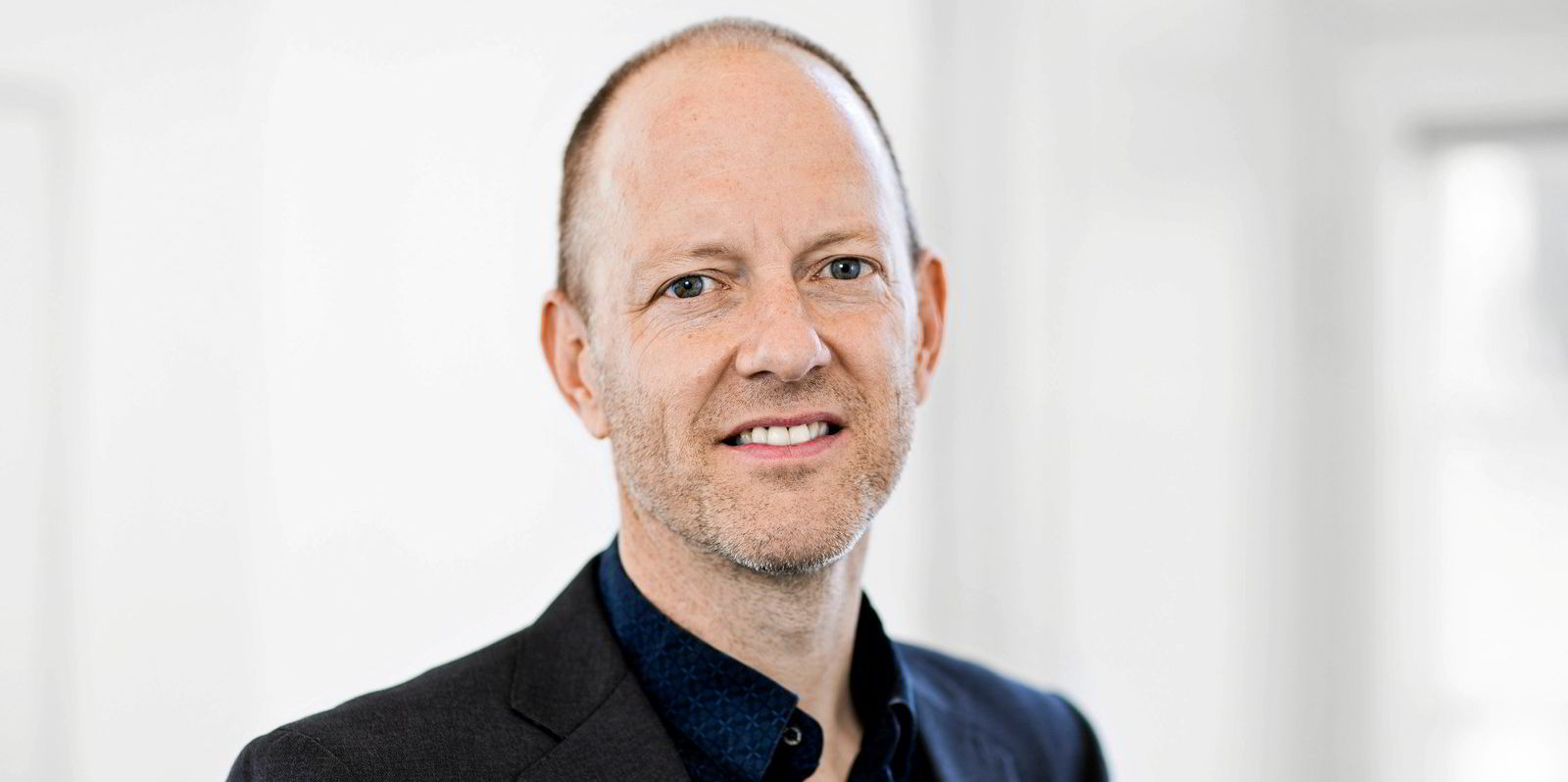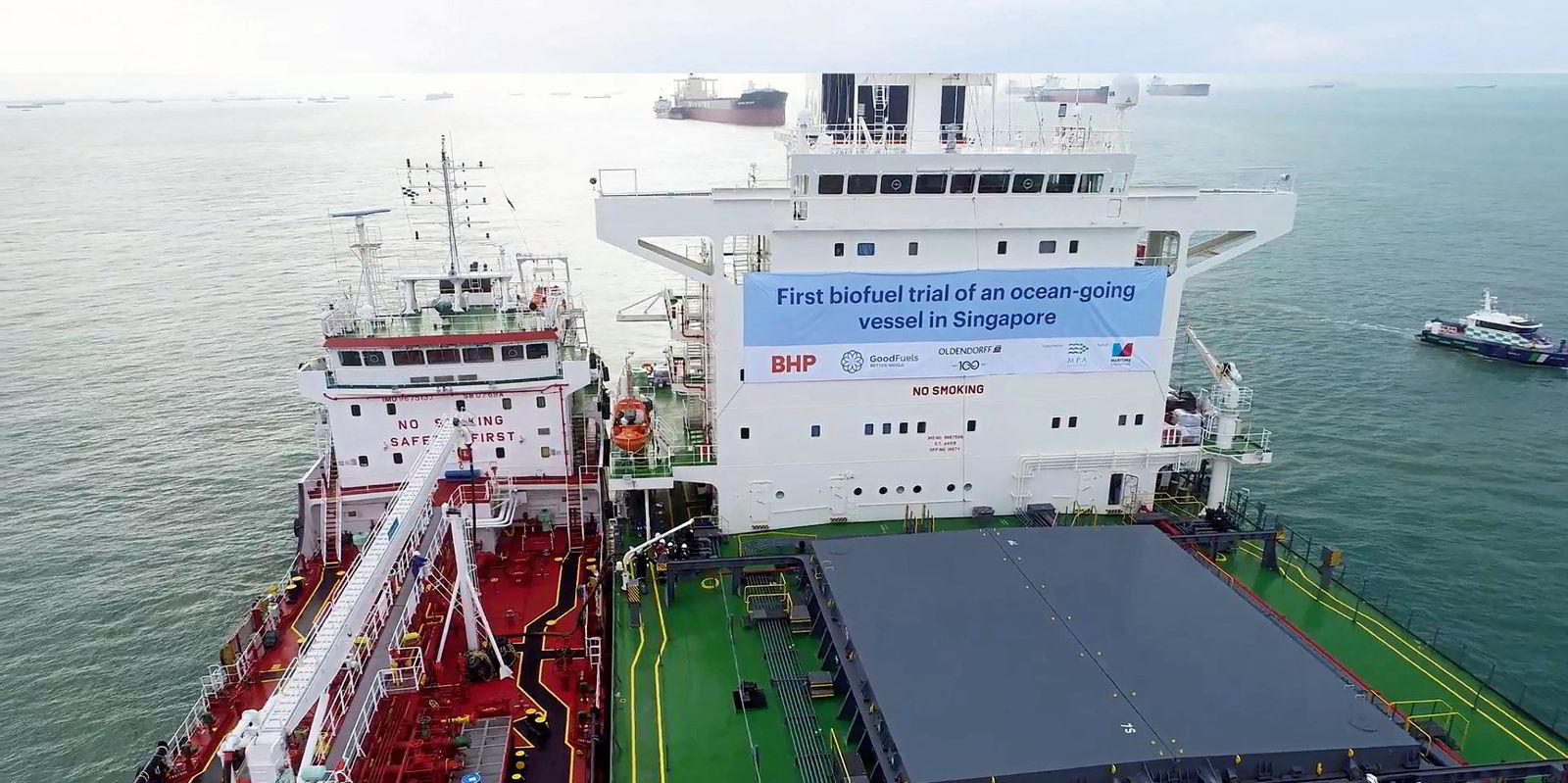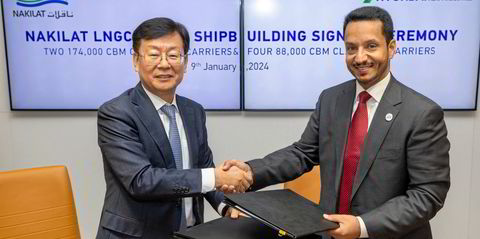A coalition of high-profile shipping companies and freight forwarders have committed to developing mechanisms that allow cargo owners to voluntarily book green shipping services using zero or near-zero-emission fuels even if they are used on another voyage.
In an initiative backed by the Global Maritime Forum, the groups said they would pursue “book and claim chain of custody” systems that could unlock voluntary markets for decarbonisation while green fuels are in short supply and there are still few ships that can use them.
“Book and claim chain of custody systems can play a major role in accelerating the early phases of shipping’s decarbonisation,” the companies said.

“They offer a valuable mechanism to advance the uptake of zero- and near-zero-emission fuels by enabling early action, even when the fuels and vessels are still in limited supply.”
The signatories include major vessel operators Hapag-Lloyd, Norden, Oldendorff Carriers, Ocean Network Express and Torvald Klaveness.
Freight forwarders DHL Global Forwarding and Keune+Nagel are also onboard, as is fuel producer Yara Clean Ammonia.
Another signatory is the Aspen Shipping Decarbonization Initiative, an effort by the non-profit Aspen Institute that has been working to bring freight buyers together to show demand signals for green shipping.
All are members of the Global Maritime Forum’s Getting to Zero Coalition.
Form of insetting
A book and claim system is a type of carbon insetting, with a specific focus on shipping services and the fuels that power them. Insets are instruments that are similar to offers, but they are dedicated to in-sector emissions rather than standing for greenhouse gas emissions from elsewhere, like planting trees.
Under a book and claim system, one party can purchase, or book, a quantity of zero-emission fuel and then claim the carbon cuts even though the fuel was used by another shipper in a different location.

“By activating early demand from shippers and cargo owners, these systems can help shipowners and fuel providers develop a business case for decarbonisation even while preferred fuel pathways are still being determined,” the nonprofit group said.
“Book and claim systems are going to be essential tools for getting decarbonisation of shipping moving, but they remain poorly understood, and their development risks getting bogged down in confusion and suspicion,” said Jesse Fahnestock, project director at the Global Maritime Forum.
Calls to action
But the signatories acknowledged that there are challenges in rolling out such systems, including scepticism around their effectiveness and a lack of clarity around accreditation by third parties.
They have called on the Greenhouse Gas Protocol and Science Based Targets initiative to create a pathway to recognise book and claim systems.
And the signatories want the International Maritime Organization to provide guidelines for assessment of shipping emissions across the full life cycle of fuels, which is on the agenda of a Marine Environment Protection Committee this week at the United Nations shipping regulator’s London headquarters.
Fahnestock told TradeWinds that because the book and claim system is voluntary, there is no formal conflict with the IMO at the moment. That could change if the IMO adopts a system that is less robust, but he said that would not stop a book and claim system from moving forward.
“If the IMO is signalling that its policy developments have down the same road, then this voluntary market can lead in a much more impactful, scalable way,” he told TradeWinds.
“It can actually open up the pathway for the regulated markets to come.”
Read more
- ‘Precious years will be wasted’: Concerns mount after IMO draft undershoots Paris Agreement goals
- Podcast: Hopes and fears for a crucial IMO meeting on shipping emissions
- Carnival ‘incredibly proud’ of decarbonisation efforts despite green group’s low marks
- Navigator nearly ‘good to go’ on carbon carrier orders as it targets UK with Bumi Armada
- Fuel production players enter lifecycle emissions conversation with call for ‘common language’




